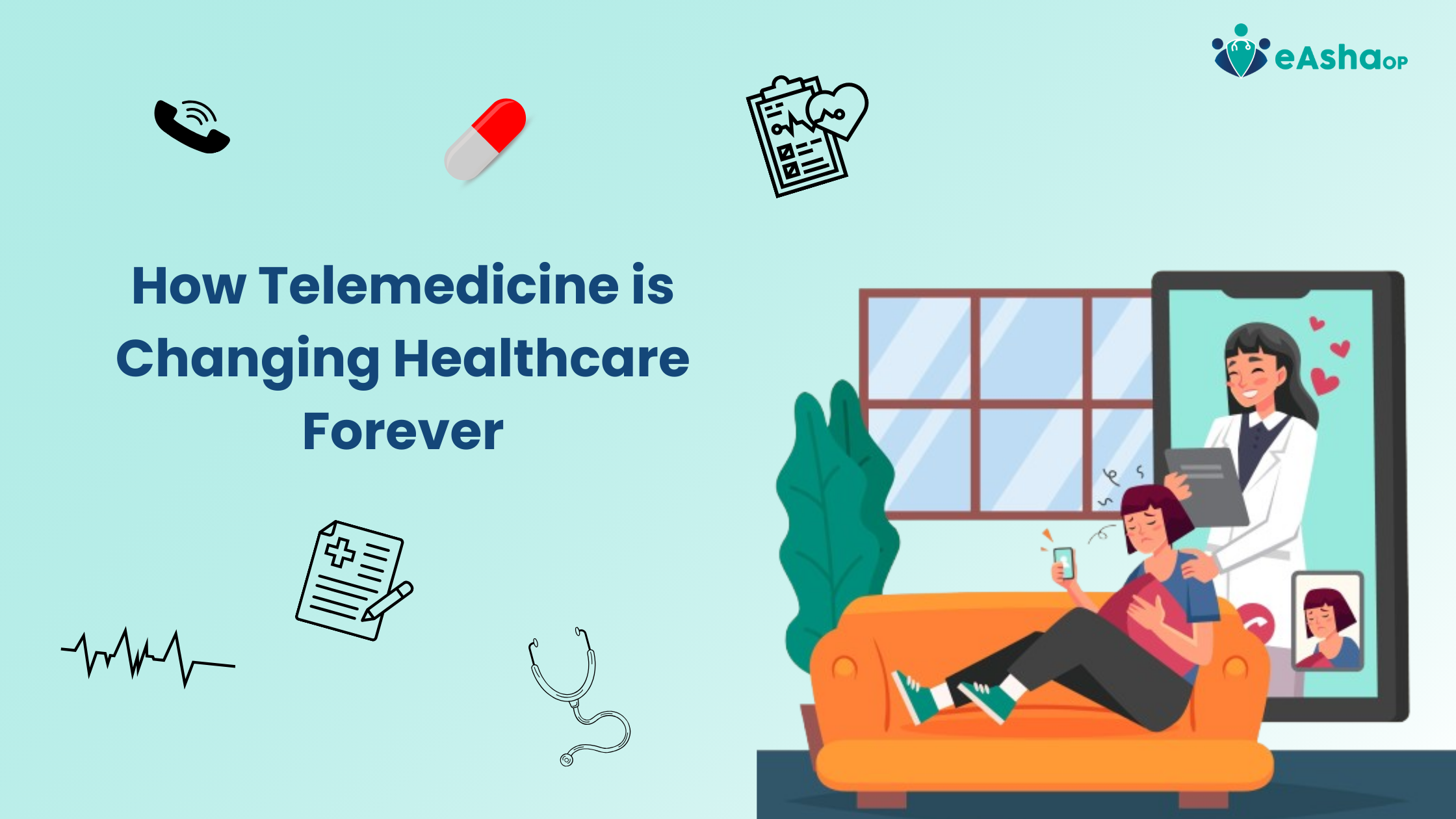How Telemedicine is Changing Healthcare Forever
 eAsha
eAsha
Introduction
Healthcare is one of the most important aspects of life, but for many years, access to quality medical care has been a challenge. People in rural areas, busy professionals, and those with mobility issues often struggle to visit hospitals or clinics. However, telemedicine is changing the way we receive medical care. With the help of technology, patients can now consult doctors from the comfort of their homes. This article explores how telemedicine is transforming healthcare and making it more accessible, affordable, and efficient.
What is Telemedicine?
Telemedicine is the use of digital communication tools like video calls, phone calls, and mobile apps to provide medical care remotely. Instead of visiting a hospital, patients can connect with doctors online for consultations, prescriptions, and even follow-ups. Telemedicine has become popular due to advancements in technology and the increasing need for convenient healthcare services.
Benefits of Telemedicine
Easy Access to Healthcare
Many people, especially in remote areas, do not have nearby hospitals or clinics. Telemedicine allows them to consult a doctor without traveling long distances.
Patients with disabilities or mobility issues can receive medical attention without leaving their homes.
Saves Time and Money
Visiting a hospital involves travel time, waiting time, and sometimes long queues. Telemedicine eliminates these delays.
Patients save money on transportation, hospital visits, and sometimes even on medical bills as online consultations are often more affordable.
Reduces Hospital Crowds
Many hospitals are overcrowded, making it difficult for patients to receive timely care. Telemedicine reduces unnecessary hospital visits, allowing doctors to focus on critical cases.
This is especially important during pandemics like COVID-19, where reducing physical contact helps prevent the spread of diseases.
Continuous Monitoring and Follow-Ups
Chronic patients who need regular check-ups can consult doctors online instead of making frequent hospital visits.
Digital health records and wearable health devices help doctors monitor patients remotely.
Better Mental Health Support
Many people feel uncomfortable discussing mental health issues in person. Telemedicine allows them to seek help privately and comfortably.
Online therapy and counseling have become widely available, making mental health support more accessible.
Challenges of Telemedicine
While telemedicine has many benefits, it also comes with some challenges:
Lack of Physical Examination
- Some medical conditions require physical tests and examinations that cannot be done online. Doctors may still ask patients to visit a hospital for certain diagnoses.
Technology Barriers
Not everyone has access to smartphones, computers, or a stable internet connection, which can limit the reach of telemedicine.
Elderly patients or those unfamiliar with technology may find it difficult to use telemedicine platforms.
Privacy and Security Concerns
Patient data needs to be protected from cyber threats and hacking.
Governments and healthcare providers are working on strong security measures to ensure patient confidentiality.
The Future of Telemedicine
Telemedicine is continuously evolving with advancements in artificial intelligence, wearable technology, and mobile applications. Some future possibilities include:
AI-Powered Diagnoses: Artificial intelligence can analyze symptoms and medical history to assist doctors in making accurate diagnoses.
Remote Surgeries: With the help of robotic technology, some surgeries may be performed remotely by expert surgeons.
More Insurance Coverage: As telemedicine becomes more common, health insurance companies are likely to offer better coverage for virtual consultations.
Conclusion
Telemedicine is revolutionizing healthcare by making medical services more accessible, affordable, and efficient. It has proven to be a valuable solution for patients who face difficulties visiting hospitals. Although there are challenges, technological advancements and government policies are helping to improve telemedicine services. As we move forward, telemedicine will play a significant role in shaping the future of healthcare, ensuring that quality medical care reaches everyone, everywhere.
Subscribe to my newsletter
Read articles from eAsha directly inside your inbox. Subscribe to the newsletter, and don't miss out.
Written by
